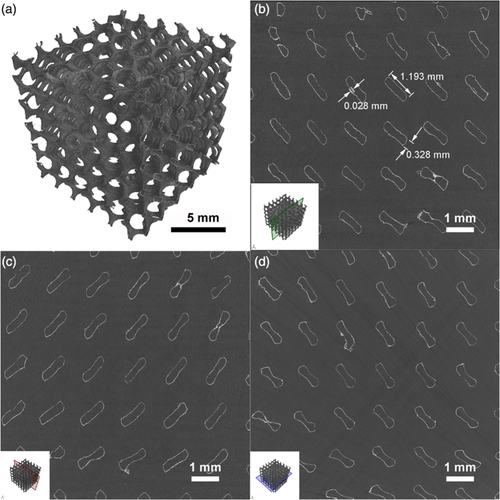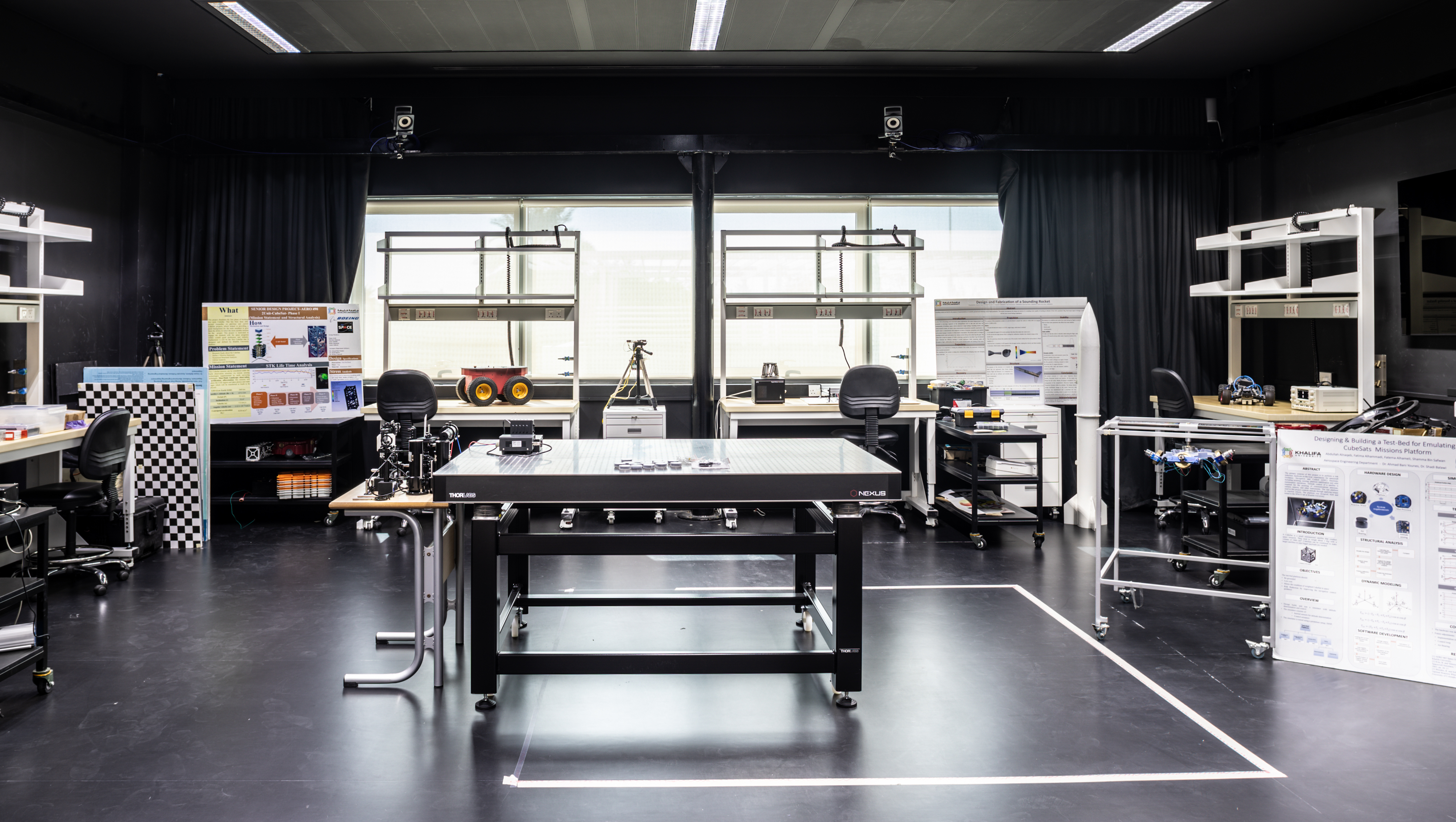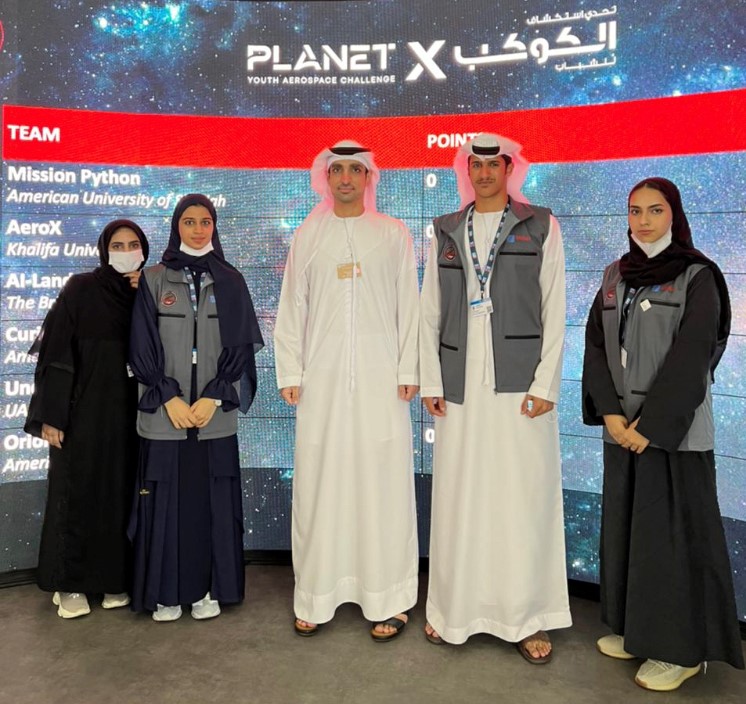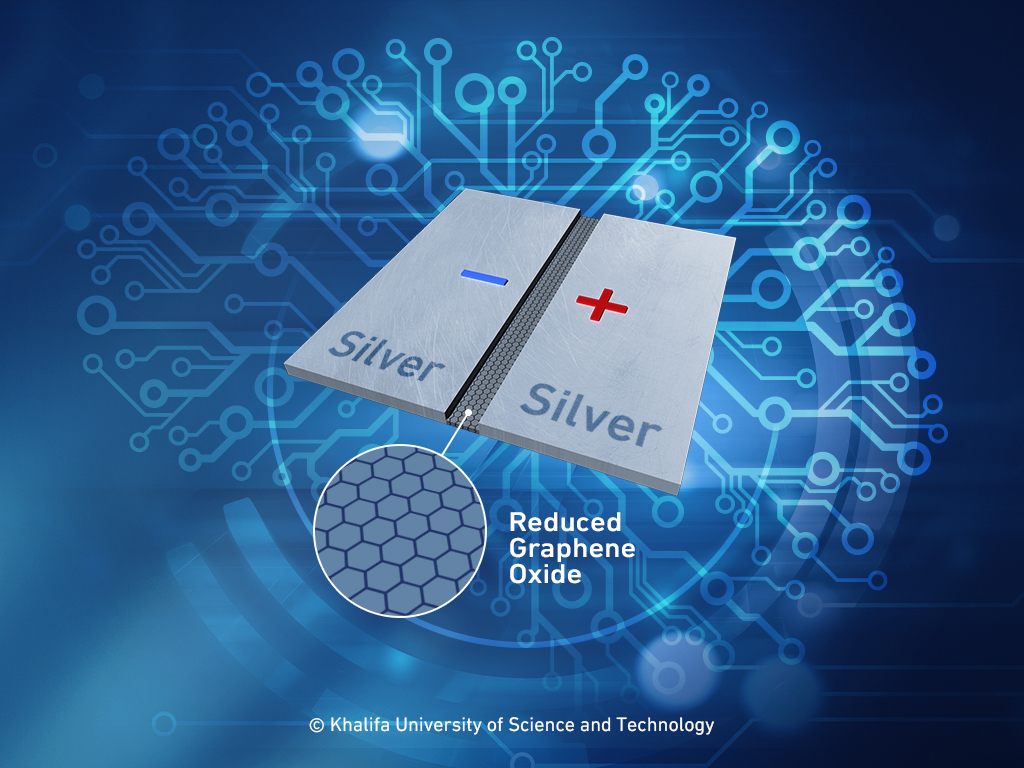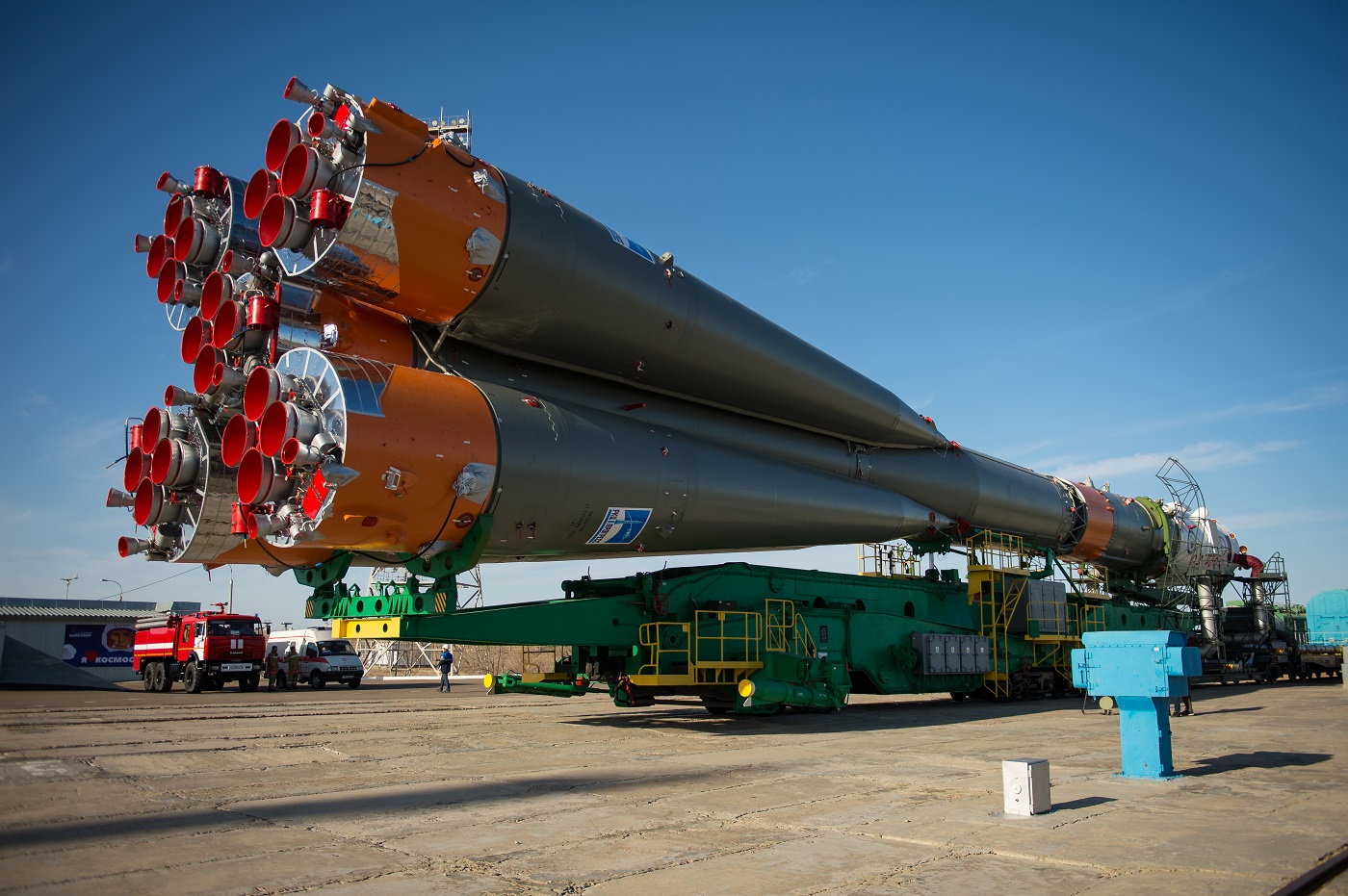
The mini CubeSat was developed by students from Khalifa University and the American University of Ras Al Khaimah, with support from UAE Space Agency
The MeznSat, a mini satellite developed through a collaboration between Khalifa University, the American University of Ras Al Khaimah (AURAK), and the UAE Space Agency, has been successfully launched into space aboard a Soyuz-2b rocket from the Plesetsk Cosmodrome in Russia.
MeznSat is a nanosatellite that weighs around 2.7kg, and measures 10cm x 10cm x 30cm, making it a 3U CubeSat.
A team of KU postgraduate students and AURAK undergraduate students developed the CubeSat. They will monitor, process and analyze the data MeznSat will send to the ground station at KU’s Yahsat laboratory and the supporting ground station at AURAK.
The goal of MeznSat is to provide data on greenhouse gas concentrations, including carbon dioxide and methane, using shortwave infrared spectrometer, in the UAE’s atmosphere. It will also collect data on the red tide phenomenon in the UAE.
The UAS Space Agency confirmed that all preparations for placing the satellite on the launch pad and successfully conducting experiments and final checks regarding the readiness of the satellite were completed in time.
With this launch, MeznSat will join the 10 satellites launched by the UAE to develop national capabilities, enhance scientific research activities, and regulate the activities of the national space sector. The project will also support Emirati young people in developing the skills necessary for the UAE’s ambitious National Space Program and its future projects.
The satellite is scheduled to reach orbit next November, one month after its launch.
The processes and expertise involved in monitoring the atmosphere are similar to those employed during conventional earth observation programs.
Using a visible camera, as well as a shortwave infrared spectrometer, the satellite will measure the abundance and distribution of methane and carbon dioxide in the atmosphere.
It will also provide valuable insight into the concentration of nutrients in the coastal waters of the Arabian Gulf, which will allow for more accurate predictions of algal blooms and support the timely implementation of relevant precautionary measures.
Erica Solomon
Publication Senior Specialist
29 September 2020


